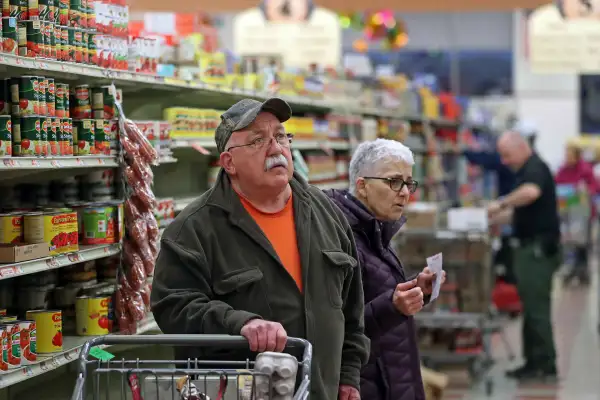Digital-Only Coupons Discriminate Against Seniors and Low-Income Shoppers: Report

Can coupons be discriminatory? A group of consumer advocates says yes, arguing that digital-only grocery store coupons are inaccessible to some of the shoppers who need them most.
Seniors and low-income shoppers, who often lack access to technology or the skills to use it, are losing out on discounts as retailers transition to digital-only in-store deals, the coalition said in a recent letter sent to Kroger, Albertsons, Stop & Shop and other major supermarket chains.
“It’s digital discrimination, and the most vulnerable people are being shut out of these online discounts at the worst possible time given record high inflation,” Edgar Dworsky, founder of the consumer education site Consumer World, said in a statement.
The coalition, consisting of the advocacy groups Consumer Action, Consumer Reports, Consumer World, National Consumers League and Public Interest Research Groups, is pressuring grocers to address the digital divide. The rise of electronic deals and discounts may seem like a convenience for many shoppers, but for those without smartphones, internet access or tech know-how, much-needed grocery store savings are often out of reach.
A survey by Consumer World found that one in four shoppers say they don’t have the technical ability to navigate a supermarket’s app or website.
Sales on essentials like meat, produce and bread are increasingly offered only through grocery apps and websites. To get the discounted price, shoppers must create online accounts and digitally “clip” coupons to add to their store cards.
For instance, a current Stop & Shop coupon offering $1 off any two boxes of Barilla pasta must be added to a shopper's online account in order to get the sale price in-store. Another active deal from Kroger requires shoppers to be plugged in to enjoy savings of 20 cents per pound on frozen turkeys.
But according to data from Pew Research Center cited by the consumer advocates, one-quarter of people 65 and older don’t use the internet. Nearly 40% of seniors don’t have smartphones, and 43% of households earning less than $30,000 a year don’t have internet access.
“Big supermarkets need to provide an offline alternative to the digitally-disconnected so they can reap the same savings that connected shoppers enjoy,” Dworsky added.
As inflation continues to make everyday goods more expensive for consumers, access to discounts is especially crucial for underserved populations, the coalition says. Shoppers who don't have the right tech or internet access might pay significantly more at the register. In a June report, Dworsky claimed grocery chains deliberately put digital-only barriers between shoppers and sale prices, knowing many of them will unwittingly pay more than what's advertised in weekly circulars.
Bridging the digital coupon divide
There are a few ways grocers can accommodate shoppers who lack access or skills to use digital offers, the coalition says.
Some franchises, like ShopRite and Food Lion, are setting an example by offering physical store coupons of equal value in addition to digital options. They also provide in-store coupon kiosks where shoppers can add discounts to their store cards.
The coalition recommended another solution already available via the Pennsylvania-based franchise Giant and Albertsons’ California chain, Vons, which use barcoded “clip or click” store coupons in their circulars, allowing shoppers to choose their preferred method.
Supermarkets should also encourage cashiers to charge the "digital-only" sale price upon request by shoppers, the coalition added.
More from Money:
How Low Could Inflation Go in 2023? Here Are 4 Expert Predictions
8 Best Cash Back Credit Cards of 2022
Sam’s Club and Costco’s Battle Over Cheap Hot Dog Deals Is Heating Up

